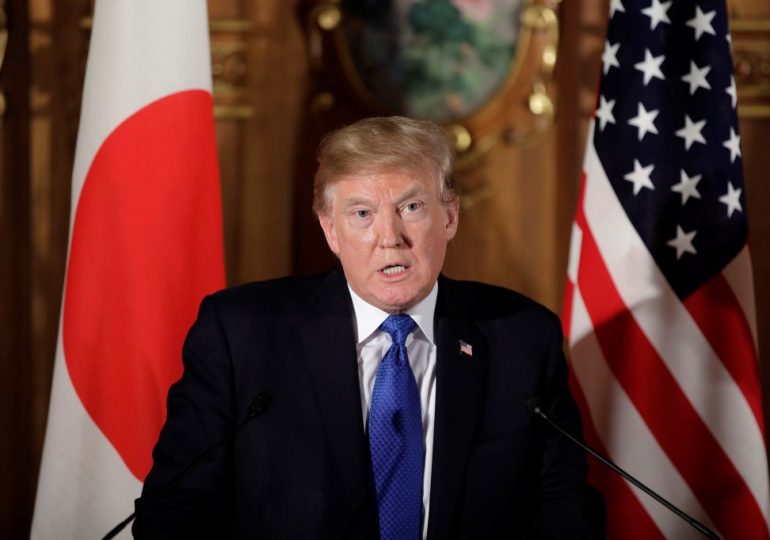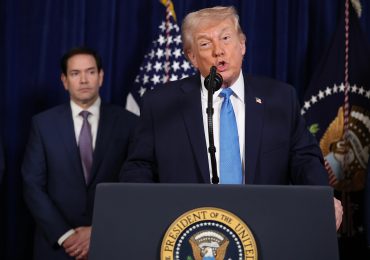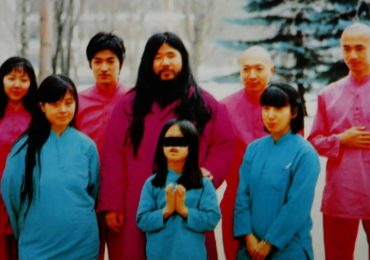Philippine President Ferdinand Marcos Jr. would like to say that it doesn’t matter who wins the U.S. election in November because his country will be fine with a second Joe Biden or Donald Trump term. But he can’t.
“I think it would be artful to say that we do not watch closely the political cycle that is ongoing in the United States,” Marcos told reporters at a forum Monday, just days after a historic trilateral summit in Washington to reinvigorate the strategic partnership between the U.S., the Philippines, and Japan. “I will not deny that we look. Certainly we examine who’s going to be in charge.”
[time-brightcove not-tgx=”true”]
The Philippines is far from the only country concerned with who will occupy the White House in 2025. The Wall Street Journal reported on Saturday that, wary of a Trump victory and a renewal of trans-Atlantic tensions due to his “America First” approach to foreign policy, European leaders are becoming more receptive to engagement and economic cooperation with China. And geopolitical observers have noted that South Korea and Japan are also anxious about Trump’s shaky commitment to security alliances as they worry about threats from, respectively, North Korea and China—the latter of whose interests in Taiwan as well as the South China Sea could see Japan’s islands caught in the crossfire of potential future conflict.
While Biden has built out a network of defense relationships across Asia, skepticism about the reliability of partnership with the U.S. surviving a change in administration likely stems from Trump’s demonstrated attitude toward NATO. In February, the former President said he would encourage Russia “to do whatever the hell they want” to European treaty members that didn’t contribute enough in his view to the security alliance.
But experts tell TIME that the U.S. Indo-Pacific strategy may actually be more secure than most policies, whether Washington is blue or red next year, because countering China is one of the few things that, so far, Democrats and Republicans seem to agree on prioritizing. Collin Koh, a senior analyst at the S. Rajaratnam School of International Studies (RSIS) in Singapore, says that despite Trump’s unpredictability, it would be “unthinkable” for the U.S. to abandon the strategic inroads the Biden administration has made in Asia, both in defense and economic partnerships.
“The bipartisan consensus on China has become stronger and stronger,” Koh says. “Even if Trump wants to adopt a somewhat more isolationist policy, given the existing global challenges, I’m not so sure whether those in the U.S. Congress are willing to relinquish what they see as U.S. global leadership in [the Indo-Pacific].”
Read More: Is Southeast Asia Leaning More Toward China? New Survey Shows Mixed Results
Koh admits: “If Trump expects us [allies in Asia] to do more, then potentially we might be put into a very difficult situation.” But he and other experts are doubtful that Trump would put an administration in place that would execute such a change.
“If Trump is re-elected,” says Derek Grossman, a senior defense analyst at the RAND Corporation, “it will depend on personnel within his administration.”
“Even though his statements may sometimes leave you scratching your head,” says Ray Powell, SeaLight Director at Stanford University’s Gordian Knot Center for National Security Innovation, “a lot of that really comes down to whom he appoints to key positions.”
“We’re not too sure who [Trump will surround himself with],” says Koh, “but I would imagine that his advisers will really impress upon him the importance of the Indo-Pacific.”
When administrations change, says Powell, there’s always some change. But he doesn’t see any reason yet to believe that Trump or a cabinet appointee of his would significantly alter the course when it comes to the U.S. approach to Asia.
“We’ve seen actually, over the past several years, through the various administrations, there’s probably been more continuity than disruption in the U.S. approach to the Indo-Pacific,” Powell says, adding: “The large bureaucracies of the Defense Department and the State Department tend to continue to move in the same direction that they have been moving.”
Still, experts believe that U.S. partners in Asia won’t throw caution to the wind and will make moves over the next several months to insulate themselves from the risk of U.S. reversal.
“Efforts will be made to institutionalize aspects of their relationship with Washington, such as military exchanges and exercises,” says Kevin Chen, an associate research fellow at RSIS. “This would make it more challenging for future administrations to uproot or discontinue these activities.”
But such moves are the type of thing the U.S.—under Trump or Biden—would welcome, says Koh. “It’s good to have allies and partners join in some of those exercises, and, you know, create more interoperability, share the defense burden, share costs and all that,” he says.
“Every country should always be concerned when there’s a change of leadership,” says Powell. “You’re always concerned just because it’s an unknown.”
“But I don’t know that anyone in the Indo-Pacific should be unusually concerned.”
Leave a comment








